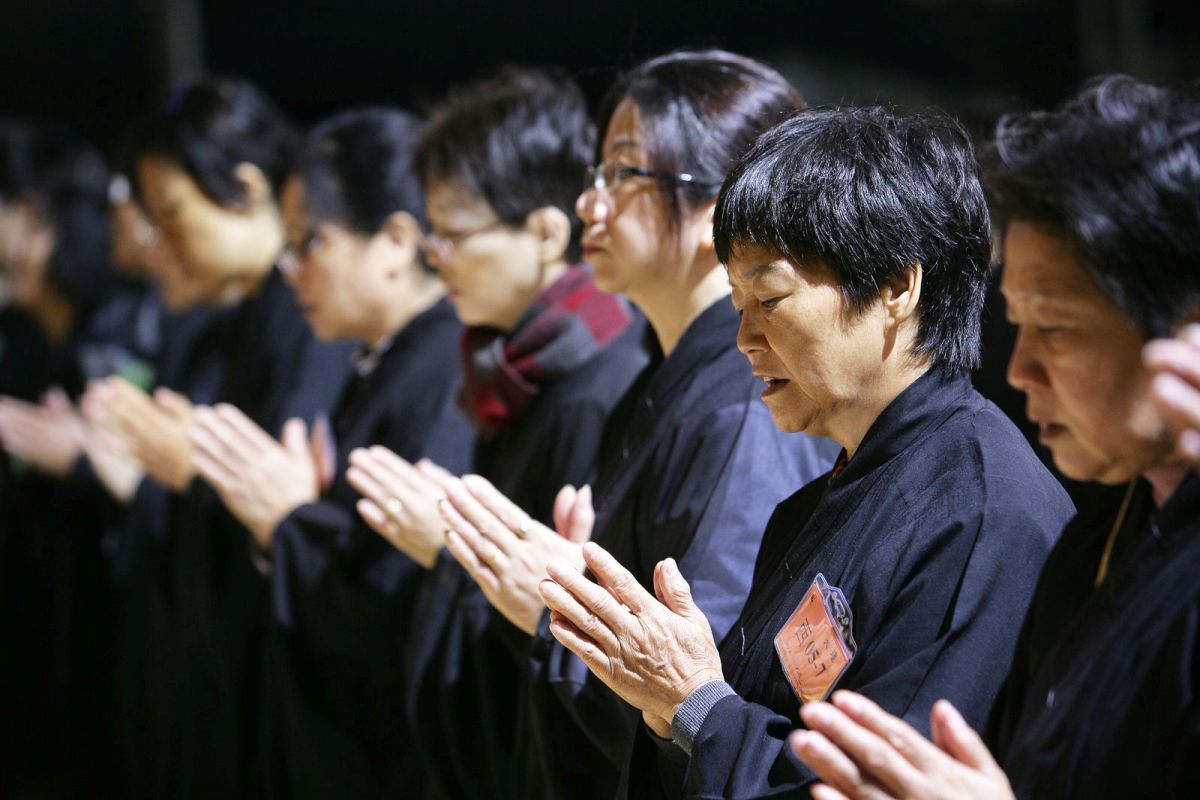Special Topics
Q5: Is making vows the same as taking oaths?
 No, they are different. "Taking oaths" and "making vows" have similarities, but they also have differences. What makes them similar is that both of them represent a kind of commitment, as well as a kind of hope. Take, for instance, the "Four Great Vows" that Buddhists recite during the daily morning and evening services. The content of these vows aims to encourage practitioners to learn from the Buddhas' and Bodhisattvas' attitude of practice and direction of life, thereby eliminating their mental afflictions and delivering all sentient beings.
No, they are different. "Taking oaths" and "making vows" have similarities, but they also have differences. What makes them similar is that both of them represent a kind of commitment, as well as a kind of hope. Take, for instance, the "Four Great Vows" that Buddhists recite during the daily morning and evening services. The content of these vows aims to encourage practitioners to learn from the Buddhas' and Bodhisattvas' attitude of practice and direction of life, thereby eliminating their mental afflictions and delivering all sentient beings.The differences between "taking oaths" and "making vows" is that making vows is all about making virtuous vows and good wishes. However, the oaths that one takes can be either good or bad. Sometimes, people take oaths out of emotional arguments or out of resentment and anger. For example, people often say: "I so-and-so swear to God…" The oaths they swear are usually curses and evil oaths. Furthermore, there are also some people who make a vow to accomplish a certain goal, no matter how difficult or even unachievable it appears to be. Although it is good to set an ideal goal for our lives, an oath whose content is too extreme or unrealistic will consequently become a bad oath. Therefore, if the oath we take is evil or malicious, then it is not a virtuous one. The vows must be made out of good intentions.''
Extended Reading:
Vows: the Blueprint for Happiness
Q1: In order to make vows, do we need to follow any sequential steps?
Q2: What are the differences between ordinary people making a wish and Buddhists making a vow?
Q3: What are the Ways to Make a Vow?
Q4: Is it necessary to fulfill a vow after making it?
Q5: Is making vows the same as taking oaths?
Q6: How to avoid making empty vows?
Resource: Issue 330 of Humanity Magazine, Dharma Drum Publishing Corporation
Translation: 可馨
Editing: Keith Brown, YKL
